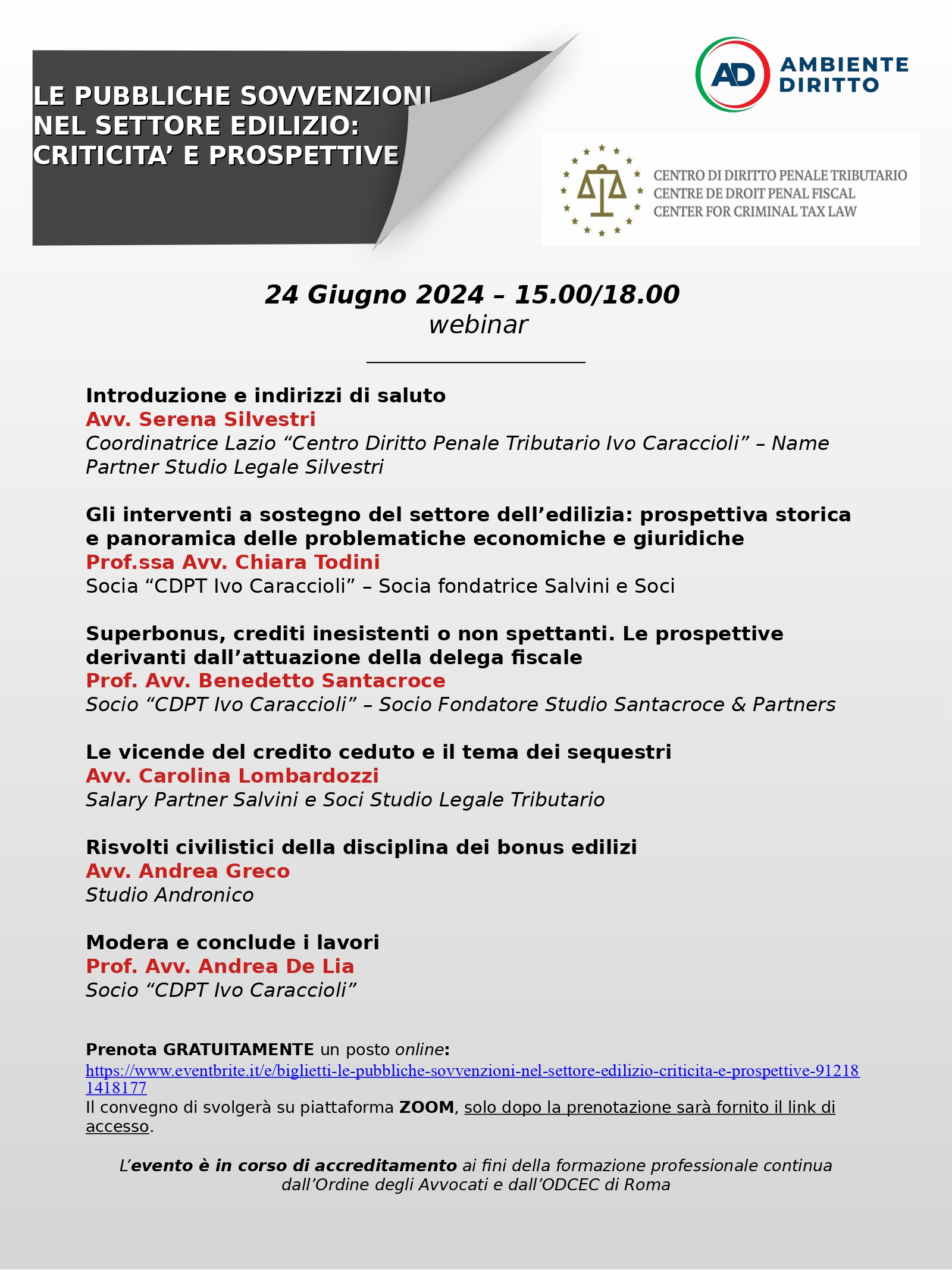______________ AMBIENTEDIRITTO ______________
TRADE UNIONS, STRATEGIC LITIGATION AND DIGITAL LABOUR PLATFORMS: A CASE-STUDY OF THE CGIL
Giovanni Gaudio – Caterina Giulia Guidetti
Abstract [It]: I lavoratori tramite piattaforma si trovano spesso ad affrontare un c.d. “justice gap” nel far valere i propri diritti, soprattutto a causa dell’ampio uso di pratiche di algorithmic management che sono centrali nel modello di business delle piattaforme. Sebbene esistano alcune tecniche che possano fungere da anticorpi normativi per ridurre questo justice gap, i lavoratori presi individualmente hanno difficoltà a farli valere in concreto. L’obiettivo di questo articolo è quello di testare l’ipotesi secondo cui i sindacati possano costituire l’anticorpo regolativo finale per colmare il justice gap che riguarda lavoratori tramite piattaforma. Per dimostrare questa tesi, l’articolo analizza la strategia adottata dalla CGIL (il più grande sindacato italiano) che, negli ultimi quattro anni, ha intentato numerose cause contro diverse piattaforme nel settore del food delivery, vincendole: circostanza che sembra confermare l’ipotesi sopra enunciata. L’articolo conclude evidenziando come il caso di studio della CGIL sembri offrire spunti utili a quei sindacati in Italia, e soprattutto all’estero, interessati a utilizzare il contenzioso come parte delle loro più ampie strategie di mobilitazione sindacale.
Abstract [En]: Platform workers often face a justice gap in enforcing their rights and this is mainly due to the extensive use of algorithmic management practices that are central to their business model. While there are certain legal techniques that can provide effective regulatory antibodies to reduce this justice gap, individual litigants may struggle to enforce them. The aim of this paper is to test the hypothesis that trade unions may be the ultimate antibody in closing the justice gap for platform workers through litigation. In order to substantiate its main claim, the article then analyses the litigation strategy adopted of CGIL (the largest Italian trade union), which has brought many successful lawsuits against several food delivery platforms over the last four years. The litigation effort of the CGIL seems to confirm the aforementioned hypothesis. The paper concludes by highlighting how the CGIL case study seems to offer many lessons for those unions in Italy, and especially abroad, interested in using litigation as part of their broader mobilisation strategies.
SUMMARY: 1. Platform workers and the (algorithmic) justice gap: why it exists and how to reduce it. – 2. The role of trade unions: why they are best placed to spearhead algorithmic litigation to close the justice gap for platform workers. – 3. Classification claims. – 3.1. Legal framework. – 3.2. Cases. – 4. Discrimination claims. – 4.1. Legal framework. – 4.2. Cases. – 5. Anti-union behaviour claims. – 5.1. Legal framework. – 5.2. Cases. – 6. Why the case study of the CGIL can be of interest of those trade unions open to resort to strategic litigation to reduce the justice gap of platform workers (and beyond).
Scarica allegato





 AMBIENTEDIRITTO.IT EDITORE
AMBIENTEDIRITTO.IT EDITORE